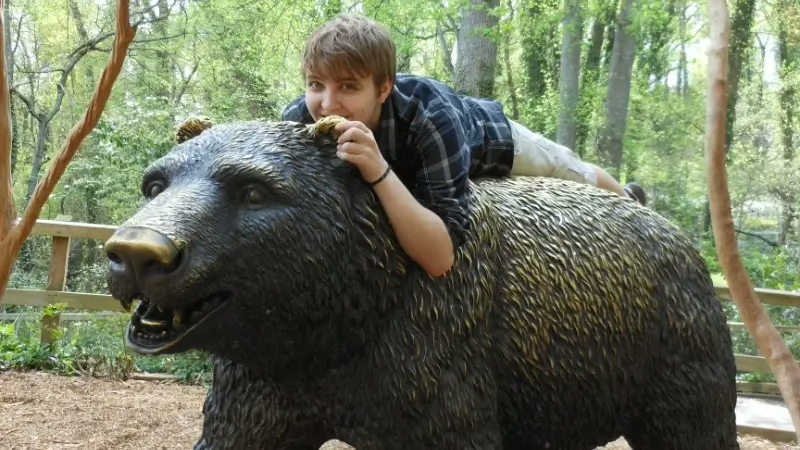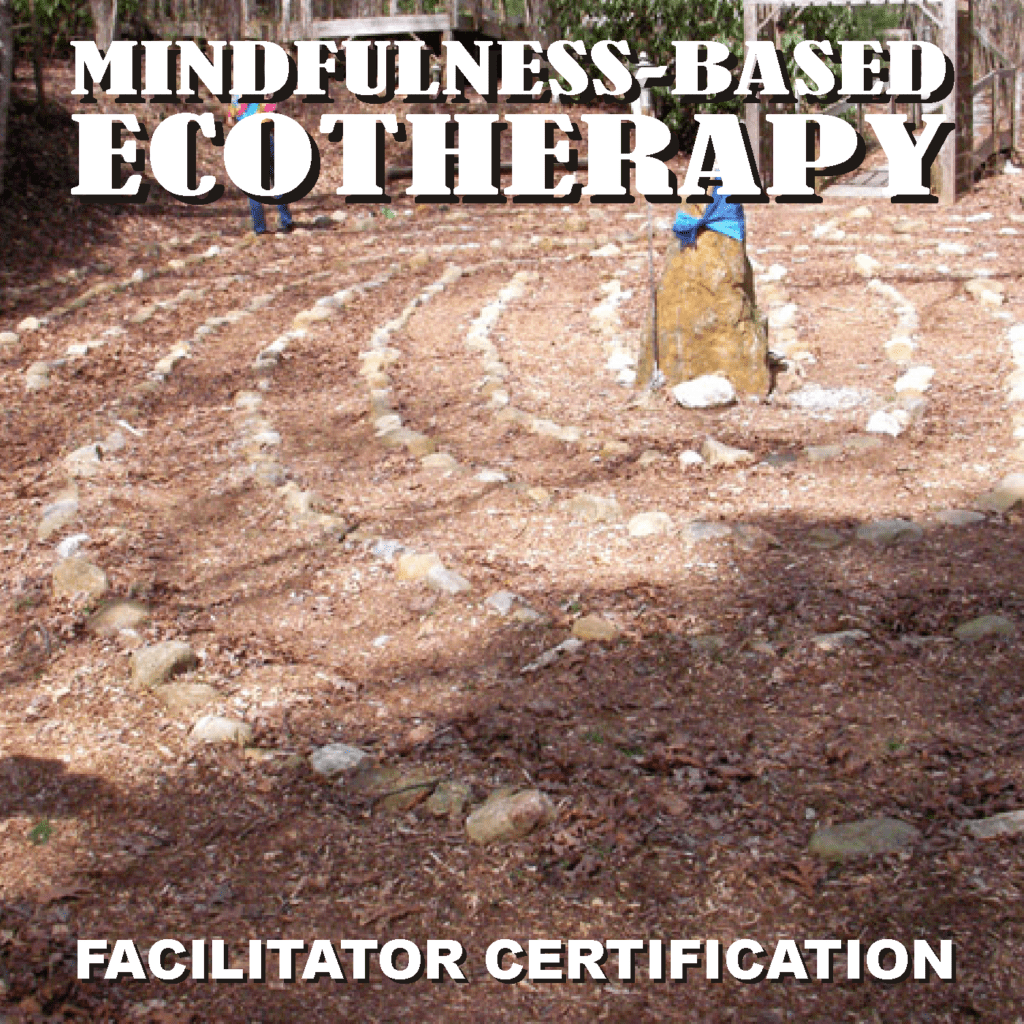
Table of Contents
Life is full of challenges, and developing emotional resilience is key to navigating stress, adversity, and change. Emotional resilience is the ability to adapt and recover from difficulties, maintaining a sense of inner strength and stability despite life’s ups and downs. While some people naturally possess higher resilience, it is a skill that can be cultivated through intentional practices.
Mindfulness-Based Ecotherapy (MBE) offers a powerful, nature-centered approach to strengthening emotional resilience. By combining mindfulness techniques with the therapeutic effects of nature, MBE helps individuals develop coping mechanisms, reduce stress, and foster inner strength. This post explores the role of emotional resilience, the impact of nature on mental health, and how MBE can be a transformative tool for personal growth.
Understanding Emotional Resilience
Emotional resilience is not about avoiding stress or hardship—it’s about developing the capacity to face challenges with a sense of balance and strength. Resilient individuals tend to:
- Recover more quickly from setbacks.
- Maintain emotional stability in difficult situations.
- Adapt to change with greater ease.
- Develop problem-solving skills rather than feeling overwhelmed.
- Cultivate self-compassion and a positive mindset.
However, many factors can weaken resilience, including chronic stress, trauma, lack of social support, and negative thought patterns. This is where Mindfulness-Based Ecotherapy can help.
How Nature Supports Emotional Resilience
Nature has long been recognized for its healing properties, offering a refuge from the pressures of modern life. Studies have shown that spending time in natural environments can:
- Lower cortisol levels, reducing stress and anxiety.
- Improve mood and emotional regulation.
- Enhance cognitive function and creativity.
- Promote a sense of connection and purpose.
- Encourage mindfulness by engaging the senses.
By integrating mindfulness practices with nature, MBE amplifies these benefits, helping individuals cultivate emotional resilience in a holistic and sustainable way.
How Mindfulness-Based Ecotherapy Builds Inner Strength
Mindfulness-Based Ecotherapy incorporates structured exercises that blend mindfulness techniques with direct engagement with nature. Here’s how MBE fosters emotional resilience and inner strength:
1. Encourages Present-Moment Awareness
Resilience begins with awareness—understanding emotions without being consumed by them. MBE encourages individuals to be fully present in their experiences, reducing rumination on past hardships or anxiety about the future. Activities such as mindful walking, observing nature, or grounding exercises help train the mind to stay present and focused.
2. Develops Stress Management Skills
MBE provides effective strategies for managing stress and emotional overwhelm. Breathing techniques, sensory awareness exercises, and meditation in natural settings help regulate the nervous system, reducing reactivity to stressors. Over time, these practices build an inner sense of calm, making it easier to respond to challenges with clarity.
3. Strengthens Self-Compassion and Acceptance
Resilient individuals practice self-compassion rather than self-criticism. MBE fosters self-acceptance by encouraging individuals to observe their thoughts and emotions without judgment. Just as nature accepts change—seasons shifting, storms passing—MBE teaches that emotions, too, are temporary and manageable.
4. Enhances Problem-Solving and Adaptability
Nature itself is a model of resilience. Plants grow through obstacles, rivers carve their paths, and ecosystems adapt to change. MBE encourages individuals to learn from nature’s adaptability, helping them shift perspectives and approach challenges with creative problem-solving skills.
5. Promotes Emotional Regulation Through Nature Connection
Spending time in nature has been shown to enhance emotional balance. The simple act of observing a flowing stream, feeling the breeze, or listening to birds can have a profound calming effect. MBE harnesses this by incorporating nature immersion techniques, allowing individuals to reset their emotional state and build resilience to daily stressors.
6. Fosters a Sense of Community and Support
Resilience is strengthened by social connections. MBE often involves group activities such as mindful hiking, outdoor meditation circles, or nature retreats, fostering a sense of belonging and support. Shared experiences in nature help build trust, empathy, and emotional strength within a community setting.
7. Encourages a Growth Mindset
A growth mindset—the belief that challenges lead to personal development—is essential for resilience. MBE helps cultivate this mindset by promoting reflection on how difficulties can lead to personal growth. Journaling exercises, guided nature meditations, and gratitude practices reinforce a positive outlook on life’s challenges.
Practical Mindfulness-Based Ecotherapy Practices for Resilience
If you want to use MBE to enhance your emotional resilience, try these simple but effective practices:
- Grounding Exercise in Nature – Stand barefoot on the grass, sand, or soil. Close your eyes, take deep breaths, and feel the connection between your body and the earth. This stabilizes emotions and promotes a sense of security.
- Mindful Walking in a Natural Setting – Walk slowly through a park, forest, or beach, paying attention to your senses. Notice the colors, textures, and sounds around you. This trains the mind to stay present and reduces anxiety.
- Tree Meditation for Strength – Sit under a tree, feeling its stability and rooted presence. Visualize yourself growing strong like the tree, adapting to challenges while remaining grounded.
- Nature Journaling – Write about your experiences in nature, focusing on resilience metaphors. How does a river persist despite obstacles? How do trees withstand storms? Relating these natural processes to your own life fosters inner strength.
- Breathing with Nature – Find a quiet outdoor space and practice deep breathing. Inhale as you visualize absorbing the energy of nature, and exhale stress and negativity. This simple practice resets the nervous system and promotes emotional balance.
- Group Ecotherapy Activities – Join a nature meditation group, volunteer for environmental causes, or participate in mindful gardening. Engaging with a like-minded community reinforces emotional resilience through shared experiences.
Final Thoughts
Emotional resilience is not about avoiding difficulties but about developing the strength to navigate them with confidence and stability. Mindfulness-Based Ecotherapy provides a powerful framework for cultivating this resilience by integrating mindfulness, self-awareness, and the healing power of nature.
By regularly practicing MBE techniques, individuals can strengthen their ability to cope with stress, regulate emotions, and maintain inner strength in the face of adversity. Whether through mindful walking, grounding exercises, or nature-based meditation, the path to emotional resilience starts with connecting to the present moment—and to the world around us.
Are you interested in exploring MBE for resilience? Share your thoughts in the comments!
Share Your Thoughts!
Please feel free to share your thoughts in the comments below!
Don’t forget to check out our YouTube channel for more information and content!
Schedule a Teletherapy Appointment with Charlton Hall, MMFT, PhD, LMFT
For those seeking personalized guidance in incorporating Mindfulness-Based Ecotherapy into their lives, Charlton Hall, MMFT, PhD, LMFT, offers professional teletherapy sessions. With extensive expertise in MBE, Dr. Hall provides tailored strategies to help individuals overcome insomnia and achieve restorative sleep.
How to Schedule an Appointment
- Visit the Mindful Ecotherapy Center Website to find more information about Dr. Hall’s approach to sleep wellness and mindfulness-based therapies.
- Book a Consultation – Easily schedule a teletherapy session that fits your availability.
- Receive Expert Guidance – Work one-on-one with Dr. Hall to develop a personalized sleep-improvement plan using MBE techniques.
By integrating Mindfulness-Based Ecotherapy into your daily routine, you can naturally enhance your sleep quality, reduce stress, and achieve long-term wellness.
Schedule an Appointment Today!
Ready to take the next step? Schedule a session with Charlton Hall today and start your journey to better sleep through the healing power of nature.




